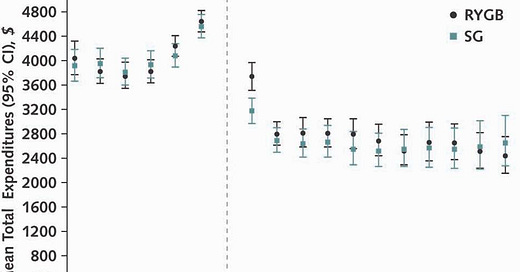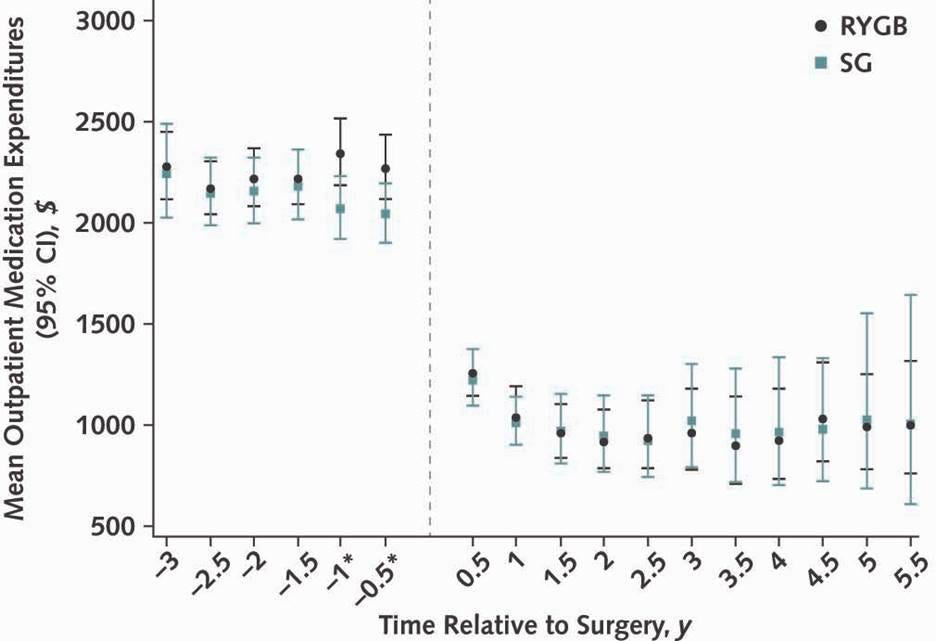Summary: Bariatric surgery is highly cost effective, and there is not much difference between traditional bypass surgery and gastric sleeve surgery.
Semi-annual cost before and after bariatric surgery
Source: Maciejewski, ML et al Annals of Internal Medicine, March, 2025 RYBG = Roux en Y bypass; SG = sleeve gastrectomy.
The Annals of Internal Medicine published an extensive study of almost 5,000 people with diabetes comparing the results of two different types of bariatric surgery, gastric sleeve (GS) and “Roux en Y gastric bypass (RYGP). The researchers found that both led to similar expenditures over five years after the procedure. The study was done at Kaiser Permanente (Southern California and Pacific Northwest), and all medical costs were converted to Medicare equivalents. This was an observational study, but the groups that had each surgery were similar in age, weight and risk.
As you can see above, the researchers did not report the cost of the bariatric surgery itself, and the cost was higher for the RYBG surgery during only the first six-month postoperative period, which is no surprise because this surgery is more extensive. Afterward, both surgeries led to a decrease in costs of almost $2,000 for each six-month period. Most of the savings were from decreased medication cost, from about $2,200 per period to about $1,000 per period. Inpatient and outpatient care costs were not statistically significantly different before and after the surgery.
Semi-annual drug cost after bariatric surgery
Source: Maciejewski, ML et al Annals of Internal Medicine, March, 2025
If the cost of bariatric surgery is about $25,000, the “break even” period where a $4,000 savings per year would lead to net cost savings would be over six years. Few medical services result in cost savings even over a half dozen years, so this data suggests that bariatric surgery is highly cost-effective.
Implications for employers:
This research shows that there is no special reason for plan sponsors to prefer either SG or RYBG, although many patients would prefer the SG procedure which has a lower short-term complication rate.
A third type of bariatric surgery, laparoscopic band, is a more minor procedure, but has a much higher failure rate. Few laparoscopic band procedures are performed at this point.
Bariatric surgery is more cost-effective than GLP-1 medications and many other services covered by employer-sponsored health insurance and leads to impressive improvements in patient health.





This is fascinating, but not the least bit surprising. So glad to see this type of data-driven research.